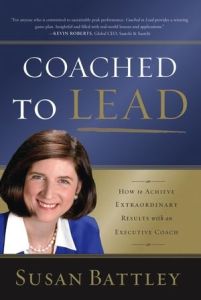Join getAbstract to access the summary!

Join getAbstract to access the summary!
Susan Battley
Coached to Lead
How to Achieve Extraordinary Results with an Executive Coach
Jossey-Bass, 2006
What's inside?
No matter how high up you are, you can always improve – if you find the right coach.
Recommendation
If you ever considered hiring an executive coach, but wondered what to expect from the experience, wonder no more. Author Susan Battley has written a tightly focused book that will answer all your questions about this helpful executive perk. Her advice will enable you to determine whether you would benefit from coaching, how it might help you improve, what coaches do, how to select one and how much they charge. Battley writes clearly and provides useful examples from her own experience. However, the book would have gotten off to a faster start if she had begun by discussing what coaches do, rather than offering an overly detailed discussion of how to determine whether you can use coaching. getAbstract recommends this book to executives who want to learn how to take advantage of professional advice to develop their leadership capabilities quickly.
Summary
About the Author
Susan Battley has worked as an executive coach with Fortune 500 CEOs, Nobel laureates and university presidents. She has been featured as a leadership expert on television and radio, and in The New York Times and The Wall Street Journal.
















Comment on this summary